A question I frequently get from readers is “How long do chickens live?”
So, how long? While on average chickens live about 8 years, chicken lifespans depend on a lot of factors, including breed, quality of life, and environment.
There’s also the little fact that many chickens people raise are intended to be food – and you can bet those poor souls don’t get to take advantage of intended chicken longevity.
And then there are the oldest chickens in the world. We’ll discuss those in a minute – stay tuned. They are adorable and amazing and you don’t want to miss seeing them.
Simply saying that the life expectancy of a chicken is about 8 years isn’t always a real, hard fact.
My friends, if you’ve read this blog for a while, you probably know my answer to the question “how long do chickens live?” is….Well, it depends.
Let’s explore exactly why I’ve given such a frustrating answer to the seemingly simple question.
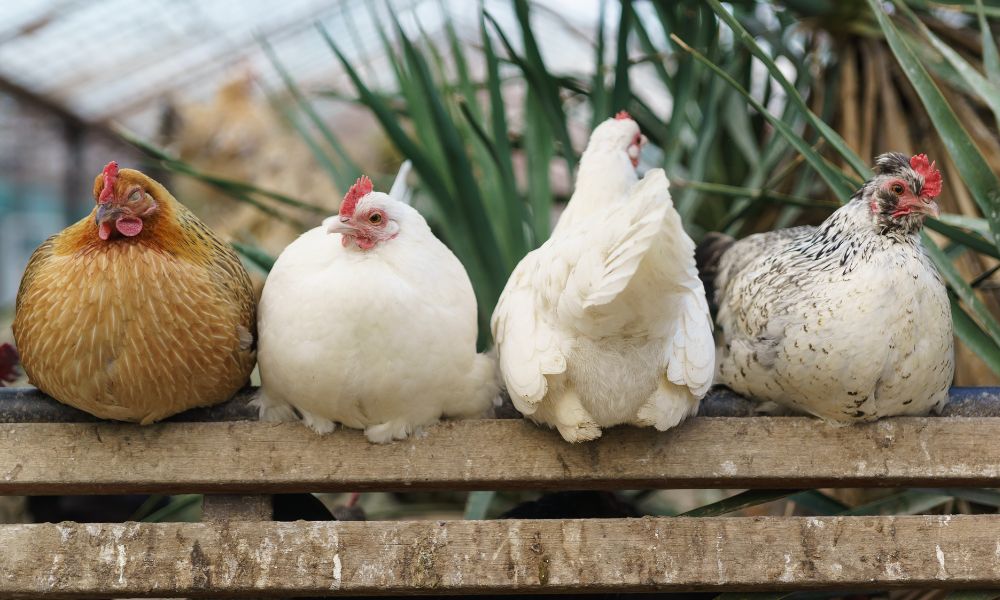
Chickens; Naturally Raising A Sustainable Flock is my best-selling book about raising healthy hens! You’ll learn how to handle sticky first aid situations, raise baby chicks with the week-by-week checklist, how to give the best care even in the worst weather, and more! Click here to learn more.
Table of Contents (Quickly Jump To Information)
Environmental Factors
While there are, without a doubt, chickens that live 8 years or longer, most backyard chickens won’t make it to that ripe old age. The main reason is that there’s something in their environment that does them in long before they get to experience a life without having to lay an egg every day.
Predators
Predators like foxes, raccoons, and opossums, among other hungry critters, are often the culprits. Chickens are prey to many dangers at night.
Unless your chickens are locked up 24 hours a day in a VERY predator-proof run, chances are, you’ll lose a flock member or two to a hawk, domestic dog, or other critter bent on a free meal.
Now, this isn’t to say you shouldn’t allow your chickens to play outdoors – quite the opposite.
As they said in Steel Magnolias, “I’d rather have 30 seconds of wonderful, than a lifetime of nothing.” It’s FAR better to allow your chickens to have a happy life outdoors enjoying the world than to keep them cooped up all the time.
Don’t feel bad if you can’t let your chickens free-range in your particular situation. But if that’s the case, be sure they have plenty of room in their coop. Also, provide a nice run for them.
Illnesses
There are also super tiny predators – parasites (worms, lice, mites). Believe it or not, those pests can lead to death. Do all that you can to prevent an overload of these tiny killers.
Click here to see some of my favorite things to ward off these little jerks.
Proper Care Factors
Veterinarians (and common sense) have long told us that pets that receive proper care are more likely to live longer than animals don’t.
Chickens that aren’t getting a consistent and proper diet, including feed and fresh water, who aren’t given basic medical care, or who aren’t given access shelter out of the elements, will likely have their lives cut short.
Be sure to feed your chickens high-quality feed that provides the right nutrition. Protein-packed treats will go a long way toward health and vitality as well.
Check on your flock regularly looking for any signs of sickness so you can address it early on and have better success in winning the fight against it.
Breed Factors
Naturally, the type of breed (including whether they are hybrid chickens or heritage chickens) is a factor that, in part, determines lifespan. Heritage breed chickens, like Rhode Island Reds and Orpingtons, have the potential for a longer life than hybrids.
Some breeds are designed to live longer than other breeds. One example is the Cornish Cross breed (broiler chickens). Because they’re bred to grow very quickly, Cornish Crosses generally don’t live very long. They’re harvested at 8 to 10 weeks of age, and even up until then, they’re on shaky ground.
Many develop heart issues, kidney problems, liver disorders, or other health issues. If they aren’t butchered by 8 or 10 weeks, they will die on their own.
Similarly, breeds of chickens developed to be frequent egg-layers (hybrids such as Production Reds) might develop internal issues associated with laying more frequently than other breeds. This, of course, will affect the chicken’s life and lifespan.
I’ve been specifically asked about bantam chickens as well. Bantams are essentially smaller chickens and their lifespan isn’t much different than their full-sized counterparts.
And then there’s Muffy, Old Hen, Matilda….and Bob Ross
Those three lovely names, plus Bob, are the names of the oldest known chickens in modern history. First, I love the fact that they have such adorable names.
Muffy
Old Hen
Matilda
Bob Ross
Muffy
Muffy was a Red Quill Muffed American game chicken. She is said to have lived 22 years! Although she was old, her age was never confirmed in any official capacity. But we will trust the owners, especially since there isn’t exactly a billion-dollar prize for the oldest chicken award.
Muffy passed in 2011. Fly high, sweet Muffy!
Old Hen
I can’t confirm if Old Hen is still living, but as of an article I read dated May 2021 she was 20 years old. She is a mixed-breed bantam and apparently, she has been an excellent mother. However, she didn’t lay as many eggs as most chickens and her owners think that may be a contributing factor to her longevity.
Matilda
The first chicken to hold the title of the World’s Oldest Chicken in the Guinness Book Of World Records, Matilda, lived 16 long years!
This cutie was born in 1990 and was part of her family’s magic show for about 10 years. Her owners contacted the Guinness Book of World Records in 2001 to see about getting her inducted. She was an indoor bird, taken to a vet regularly, and never laid eggs (which the vet said likely contributed to her longevity).
Bob Ross
I left Bob Ross for last because I’m sure he was a gentleman that would insist the ladies go first.
Bob died, after 20 years of life, in 2010. He was a blind white crested Polish show rooster. He assisted his owner in a fortune-telling gig. I’d say it was a bit of a comedy show more than anything since fake eggs containing fortunes “magically” appeared beneath him.
What Lessons Can We Learn From Muffy and Friends?
Purely pet chickens that are spoiled rotten, like the oldest chickens in the world, have an increased chance of living beyond the average lifespan.
Now, 16 to 22 years is a REALLY long time for any hen to live and I wouldn’t necessarily expect any of my chickens to live that long. Although I wouldn’t be opposed to it.
So How Long Do Chickens Live?
Officially, I’ll stick with the “about 6-8 years” answer, largely because there haven’t been studies to prove otherwise.
We’ve personally had chickens live that long….and then we’ve had chickens that don’t live past the first year because of predators.
There are truly so many factors that no one can give an exact answer and I think we can all understand that. This is precisely why this is the million-dollar question, so to speak.
Tips for Keeping Your Chickens Healthy:
- 10 Abnormal Eggs: What You Need to Know
- Keep Your Hens Healthy With A Dust Bath
- Organic Homemade Chicken Feed Recipe
- What Your Chicken Coop Should Include
Learn More about Types of Chickens with the Backyard Chicken Bundle!
The Backyard Chicken Bundle is a unique ebook bundle with every resource you need to start raising a flock of healthy hens! You can get this bundle for just $24.99 (Total actual value $250). Information you can TRUST by a recognized backyard chicken expert featured in Reader’s Digest, Glamour, and on major news networks like ABC, CBS, & NBC.
START spending every possible minute playing with & enjoying your pets (without the worry)!
Included in the bundle:
- 5 individual ebooks with over 40 gorgeous full-color photographs, charts, and recipes for all-natural coop cleaners, layer feeds, herbal first aid salves, and more. E-books naturally complement each other so you have information at your fingertips.
- 34-page Herbal Encyclopedia to growing 30 different herbs for your hens right in your own backyard
- 3 downloadable checklists to save your flock from bad weather & predators, and to keep them healthy while molting.
- 1 video – Apple Cider Vinegar for Backyard Chickens that shows you step-by-step how to make organic apple cider vinegar in your own kitchen.
Click here to learn more about the Backyard Chicken Bundle!

Maat van Uitert is a backyard chicken and sustainable living expert. She is also the author of Chickens: Naturally Raising A Sustainable Flock, which was a best seller in it’s Amazon category. Maat has been featured on NBC, CBS, AOL Finance, Community Chickens, the Huffington Post, Chickens magazine, Backyard Poultry, and Countryside Magazine. She lives on her farm in Southeast Missouri with her husband, two children, and about a million chickens and ducks. You can follow Maat on Facebook here and Instagram here.


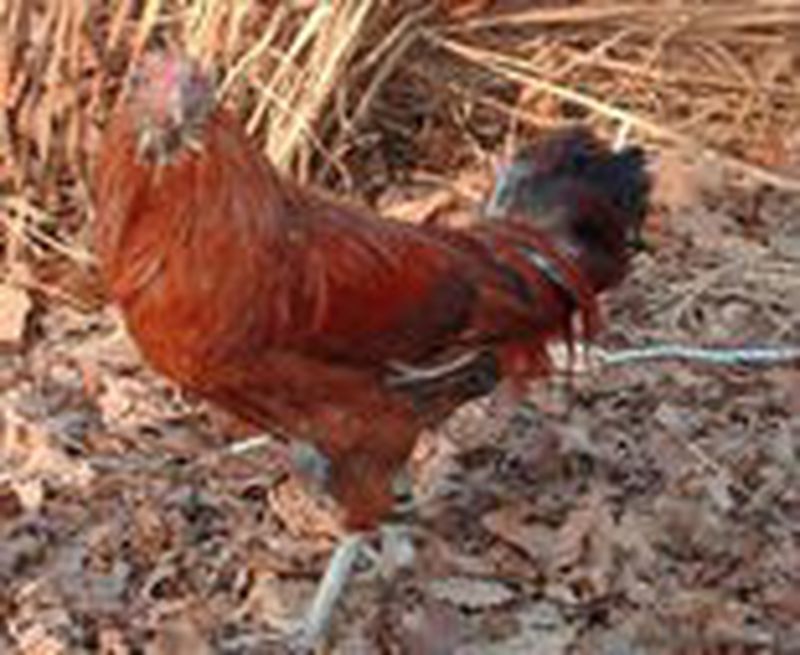
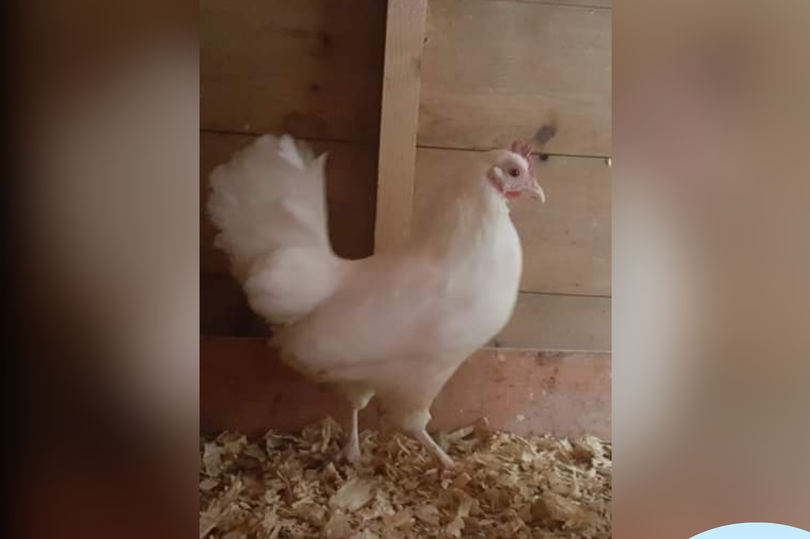
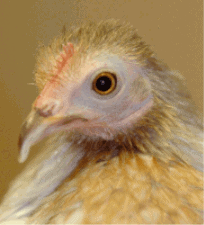
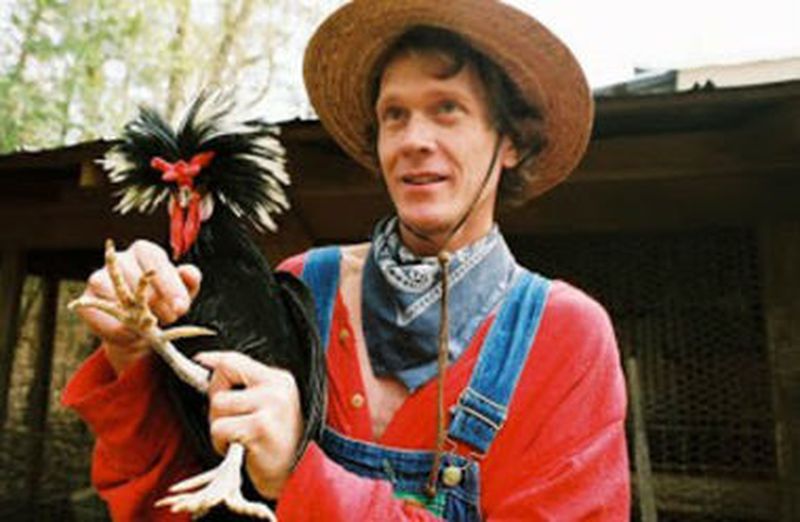
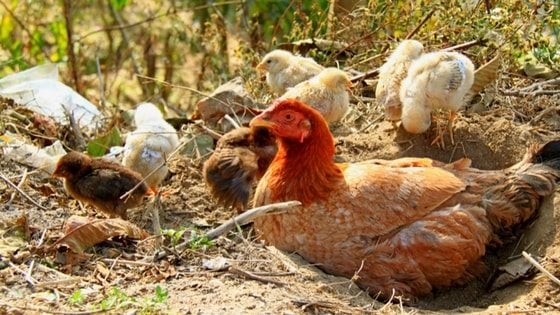



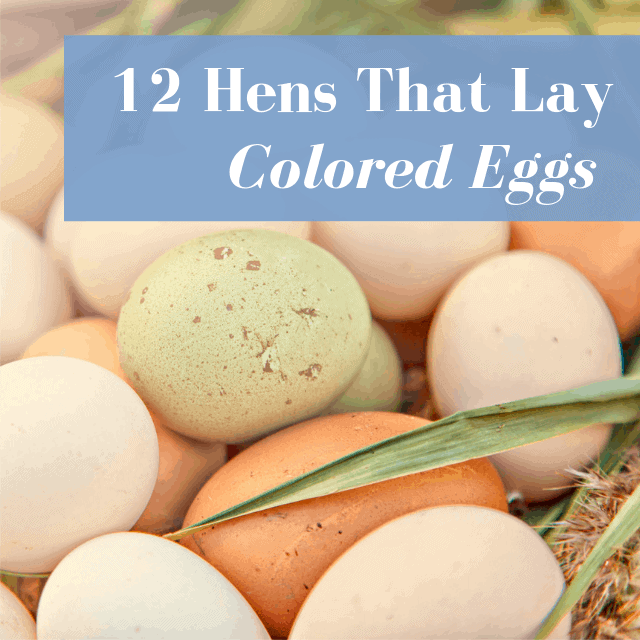
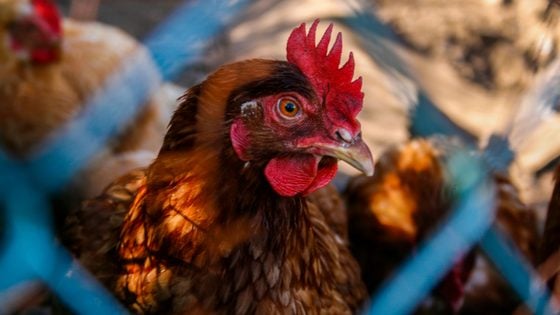
I have a couple of hens that are currently 9 or 10 years of age. Big black feathered beautiful birds. I don’t even know what breed they are but if the rest of my girls look that good at their age (if they make it that long) I’ll be very happy.
Love this!
Looking for an automatic door for our coop. Any info on this?
Yes – I have an article on the site about coop doors!
Thanks for your informative article. I have had chooks live to almost 8yo and 10yo. We generally euthanase them when they get sick or stop laying well, so we can get new young ones. We are in the suburbs and are limited to the number we can comfortably fit… We currently have a couple of Australorpe X girls who are 7yo and lay once or twice a week…
I have 8 ex battery girls all around 4 years of age. All enjoying life free ranging and dirt bathing and of course eating and sun bathing. 3 of these girls have had implants to stop them from laying as they were having reproduction issues and now all OK. The others lay infrequently but I don’t mind as promised them a forever home after their battery ordeal. Hoping that with the correct food and care they will live to a ripe old age. They are fully feathered,with nice red combs and great appetites.
I had a rooster live until 13 y o.I currently have a 4.5 y o hen that lays every 36 hours..How do I know,you ask-she only lays in my dirty laundry basket.She comes to the front door and whines to get in or follows me straight back to the house when I turn them loose in the morning.If I’m gone,she “holds” it until I return and let’s me have it all the way to the door.